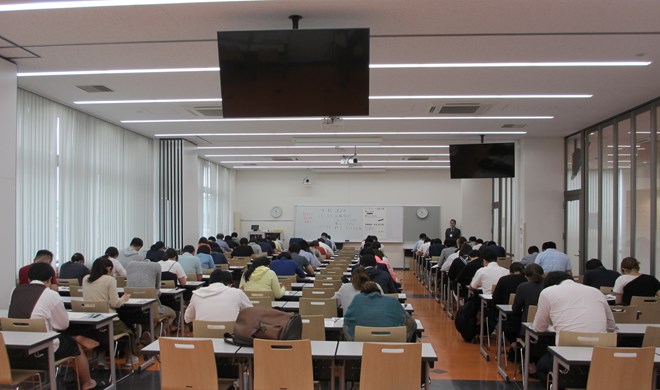


More than 700 Japanese candidates on June 23rd registered for the third Vietnamese-language proficiency test held by the Japan College of Foreign Languages in Tokyo.
The number of contestants doubled that of the first in 2017.
President of the 2019 exam council Yanagisawa Yoshio said this year’s contest received warm response from candidates across 36 Japanese localities all over Japan. They are students, lawyers and police officers, aged from 12 to 83.
The test is divided into six levels with the second as the highest.
The rate of participants passing the exam increased from 16.7 percent in the first in 2017 to 29.8 percent in the second in 2018.
 Japanese candidates at the exam.
Japanese candidates at the exam.
Rector of the Japan College of Foreign Languages Ise Yoji said the relations between Vietnam and Japan have developed strongly in all fields in recent years, adding an increasing number of Japanese people want to learn Vietnamese.
Pham Quang Hung, first secretary in charge of education affairs at the Vietnamese Embassy in Japan, said the number of Japanese students learning Vietnamese at universities is increasing, mainly those having special sentiment with Vietnam or want to work in the fields related to the Southeast Asian country in the future.
Furthermore, as the number of Vietnamese people living and working in Japan has been surging, the demand for learning the language among Japanese officials and authorities has increased, too.
The Japan College of Foreign Languages under the Bunsai Gakuen Non-Profit Education Foundation is the first and only organization so far to host the Vietnamese language proficiency contest in Japan.
Masayoshi Fujino, director in charge of external affairs at the college, said the exam aims to encourage Japanese people to speak Vietnamese and increase cultural exchanges and mutual understanding between the two countries.
The fourth edition of this kind will be held at the end of June 2020./.